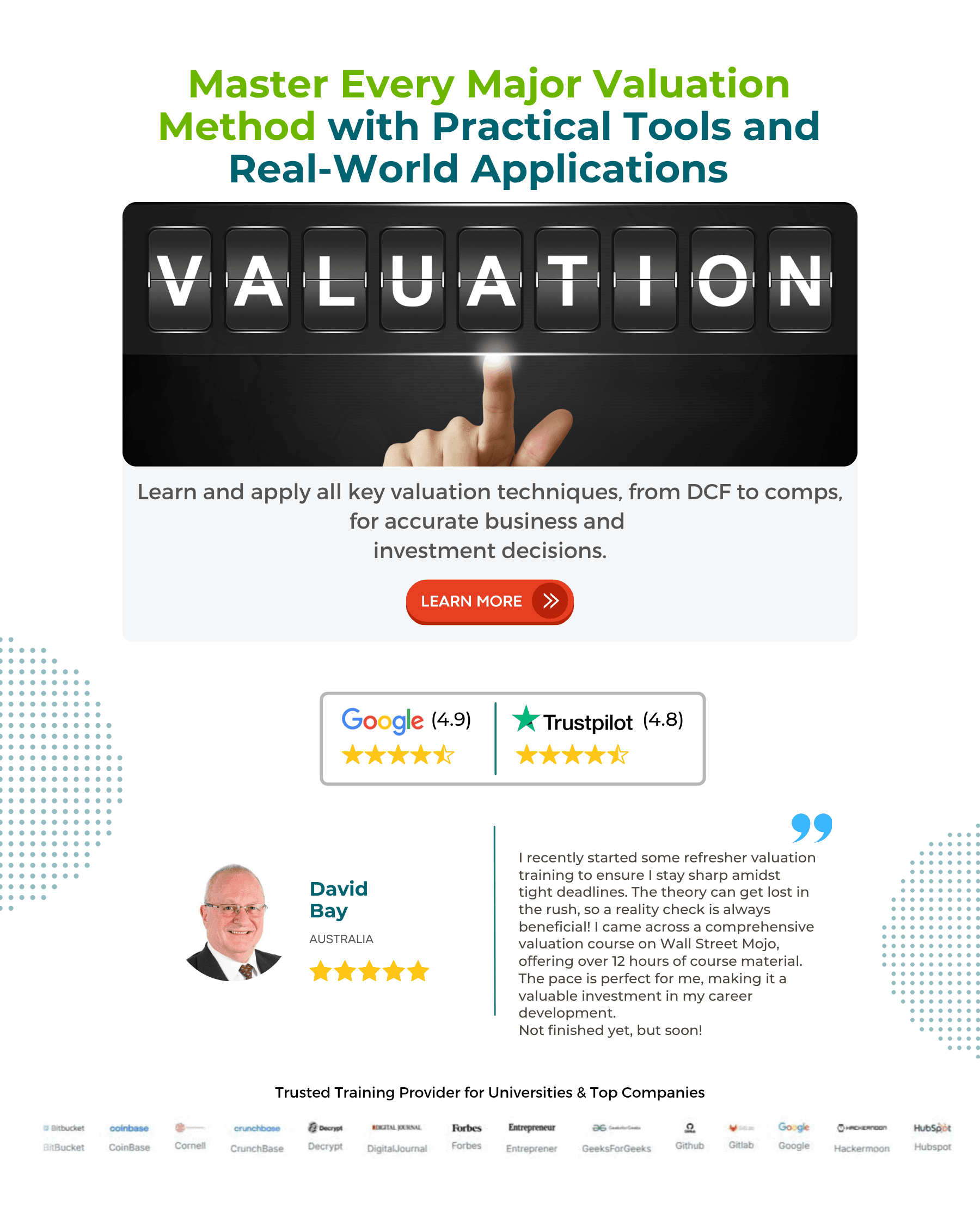Table Of Contents
What Is A Chartered Business Valuator (CBV)?
A chartered business valuator determines the value of an asset or firm. It is a certification offered by the CBV Institute of Canada. The institute trains students to evaluate cash flows, tangible assets, intangible assets, and financial statements.

CBV candidates must pass a two-year course and attain 1500 hours of experience before attending the membership examination. After evaluating an asset or a firm, CBVs formulate an exhaustive report detailing every asset, investment, debt, sales, and partnership.
Key Takeaways
- A chartered business valuator (CBV) is a professional who undertakes business valuation. The CBV Institute of Canada provides accreditation to 2200 students every year.
- CBVs spring into action when an owner wants to sell their business or merge with another business. Business valuation is applied extensively, from start-ups to large corporations.
- The chartered business valuator salary averages around $60000 per annum. With increased experience and expertise, this number is higher.
Chartered Business Valuator Explained
A chartered business valuator (CBV) is a professional possessing specialized accreditation from the CBV Institute of Toronto, Canada. Thus, CBVs keenly understand valuation principles and business report analysis. It is considered a reputed role; thousands of students enroll in the chartered business valuator program every year.
Due to the growing demand, vacancies for chartered business valuator jobs are plenty. Besides, the institute has set a limit of 2,200 students per year. Again, CBV is a crucial accreditation for professionals undertaking company valuation in Canada. CBV accreditation is accepted internationally.
To become a CBV, aspirants require a post-secondary education issued by an academic institution from the University of Canada. Equivalent educational credentials from other countries are also accepted in most cases. Before appearing for the membership exams, CBV students must complete two years of coursework and 1500 hours of experience. The curriculum is divided into mandatory 750 hours of experience in core subjects and 750 hours of non-core valuation experience.
The core valuation comprises valuation, loss estimation, investment analysis, debit analysis, credit analysis, value creation tasks, consultation, and corporate negotiations (deals).
Non-core tasks comprise financial modeling, transfer pricing, forensic accounting, risk management, trend analysis, private investments, litigations, and business valuation.
When all the requirements are met successfully, CBV students can apply for membership by appearing for the Membership Qualification Exam (MQE). The membership application comes with a new membership fee of $595 and a pro rata annual fee.
Responsibilities
CBVs draft valuation reports based on business requirements. The reports are further categorized into three—comprehensive valuation reports, calculation valuation reports, and estimate valuation reports.

CBVs spring into action when an owner wants to sell their business or merge with another business. Business valuation is applied extensively, from startup companies to large corporations. Business valuation is the foundation for most business decisions, be it dispute resolutions, mergers, acquisitions, attaining credit from financial institutions, or tax planning.
In addition, a business owner requires an accurate value to analyze potential growth and opportunity costs. Thus, CBVs also facilitate a blueprint for future expansion.
For evaluation, CBVs first consider the purpose of valuation. Next, they focus on factors like background, products, services, sector-wise growth, and political situations. Then they venture further into the company's financial statements, capital structure, transactions over the past years, industry ratios, and other quantitative and qualitative data. In addition to documents, CBVs focus on asset evaluation. This process is separate for tangible assets and intangible assets.
Roles
A CBV performs the following roles and responsibilities.
- CBVs primarily work on mergers, acquisitions, divestitures, taxation, ESC, risk management, buyouts, and financial reporting.
- CBVs determine a company's economic value based on accounting and financial statements.
- They produce a detailed report of the assets owned by different parties involved in business transactions.
- CBVs are not confined to corporate responsibilities. The CBV role has a broad scope, be it family court, divorce, or a separation settlement.
Examples
Let us look at some examples to understand CBVs better.
Example #1
Let us assume that a multinational company offers a specific price to buy from another company. Here, an enormous corporation is trying to acquire a smaller firm.
If the smaller company is interested, a deal can be negotiated or taken forward. However, the parties are unable to arrive at a fair price. This is where a CBV comes in. CBVs act as impartial third-party to resolve disputes between two parties.
The outsourced CBV evaluates the smaller company in every aspect—tangible assets, intangible assets, securities, real estate, properties, land, machinery, equipment, financial statements, and business reports.
After evaluation, the CBV drafts a detailed report on the smaller company's financial position and stability. Due to accreditation and credibility, the parties accept the new valuation as a fair price—the takeover is successful.
Example #2
Let us look at another example to understand the role played by a CBV.
Terrence and Teresa lived in Chicago and were married to each other. However, five years into the marriage, the couple separated. Eventually, they filed for a divorce.
For the divorce settlement, both parties declare asset values and liabilities concerning the marriage date and separation date. In divorce settlements, profits and growth of assets are divided equally.
Allocation of assets was tricky since Terrence owned a small company. The company possessed stock options and investments. To resolve the legal hurdle, both parties mutually agree to hire an external CBV—Cathy. Cathy evaluates assets and reports a fair market value. Further, the property is divided based on the exhaustive report prepared by her.
Cathy follows Illinois state laws here since Terrence and Teresa lived in Chicago. Family law regulations differ from one state to another. If children are involved, divorce settlements require a separate income assessment—to maintain transparency and fairness.

